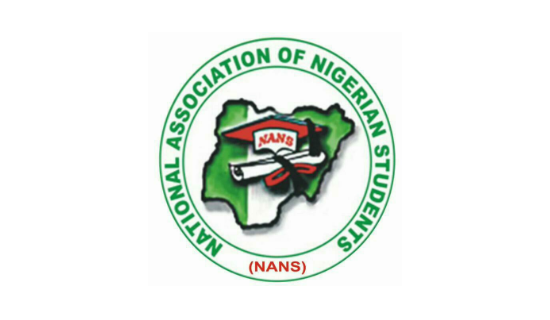The National Association of Nigerian Students (NANS), Joint Campus Council (JCC), Lagos State Axis, has strongly criticised the University of Ibadan management following the suspension of three students for their involvement in a peaceful protest, describing the institution’s action as a brazen attack on democratic expression and student rights.
The affected students, Aduwo Ayodele, Nice Linus, and Mide Gbadegesin, were reportedly rusticated for four semesters after appearing before a disciplinary panel set up by the university. Their offence, according to NANS, was their participation in a peaceful demonstration under the banner of the #FeesMustFall campaign, aimed at drawing attention to rising tuition and the financial burden currently placed on Nigerian students.
In a statement issued on Monday by the NANS Lagos State Public Relations Officer, Ridwan Ajayi, the association condemned the disciplinary measure as unjust, politically motivated, and designed to instil fear among students who dare to question the system. Ajayi noted that the university’s action represents not just a disciplinary measure but an assault on free speech and lawful protest on Nigerian campuses.
He stated, “These students committed no crime. They simply held placards bearing the message ‘#FeesMustFall’, a peaceful and symbolic demonstration at a time when students across the country are suffocating under the weight of economic hardship. Yet, for this act of courage, they are being punished.”
NANS Lagos did not mince words in describing the university’s action as a calculated witch-hunt and a gross abuse of power by the institution’s leadership. The association particularly took aim at the Vice-Chancellor, Professor Kayode Adebowale, accusing him of using institutional machinery to stifle student activism and suppress voices of dissent on campus.
“This is not just a disciplinary action; it is a direct attack on the Nigerian student movement,” the statement read. “What has occurred is a complete disregard for due process and democratic principles. It violates both national and international human rights standards, particularly the right to peaceful assembly and freedom of expression.”
NANS hailed the courage of the three rusticated students, praising them as heroes of resistance who refused to stay silent in the face of hardship and injustice. “Comrades Aduwo, Nice, and Mide stood tall when it was risky to do so. They spoke up when silence would have been easier. For their bravery, they now bear the burden of collective resistance.”
The student body has now demanded a full reversal of the rustication, a public apology from the University of Ibadan’s management, and an immediate end to what it termed the “targeted persecution of student activists.” NANS also issued a rallying call to other chapters, student groups, and civil society partners across the country, urging them to rise in solidarity with the suspended students.
The association warned that any attempt to silence student voices would be met with strategic resistance and mass mobilisation, both online and on the streets. “We will not allow intimidation to prevail. This decision by the UI administration will not go unchallenged. We are prepared to respond with solidarity, strategy, and unshakable courage.”
The protest that led to the suspension is one of many that have erupted in Nigerian universities as students grapple with rising tuition fees, inflation, and a shrinking job market. The #FeesMustFall campaign, which mirrors similar student movements across Africa, continues to gain traction as students demand urgent reform in the financing and accessibility of higher education.
As the matter unfolds, observers are watching closely to see how the University of Ibadan and the Nigerian academic community respond to the mounting calls for justice and the protection of student rights in the face of growing socio-economic pressure.
